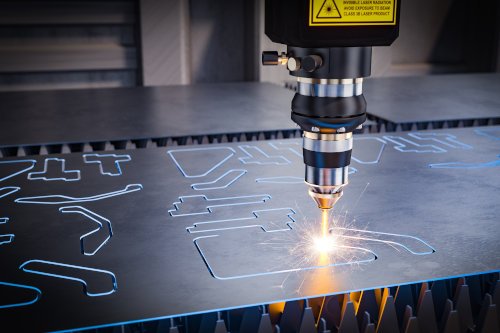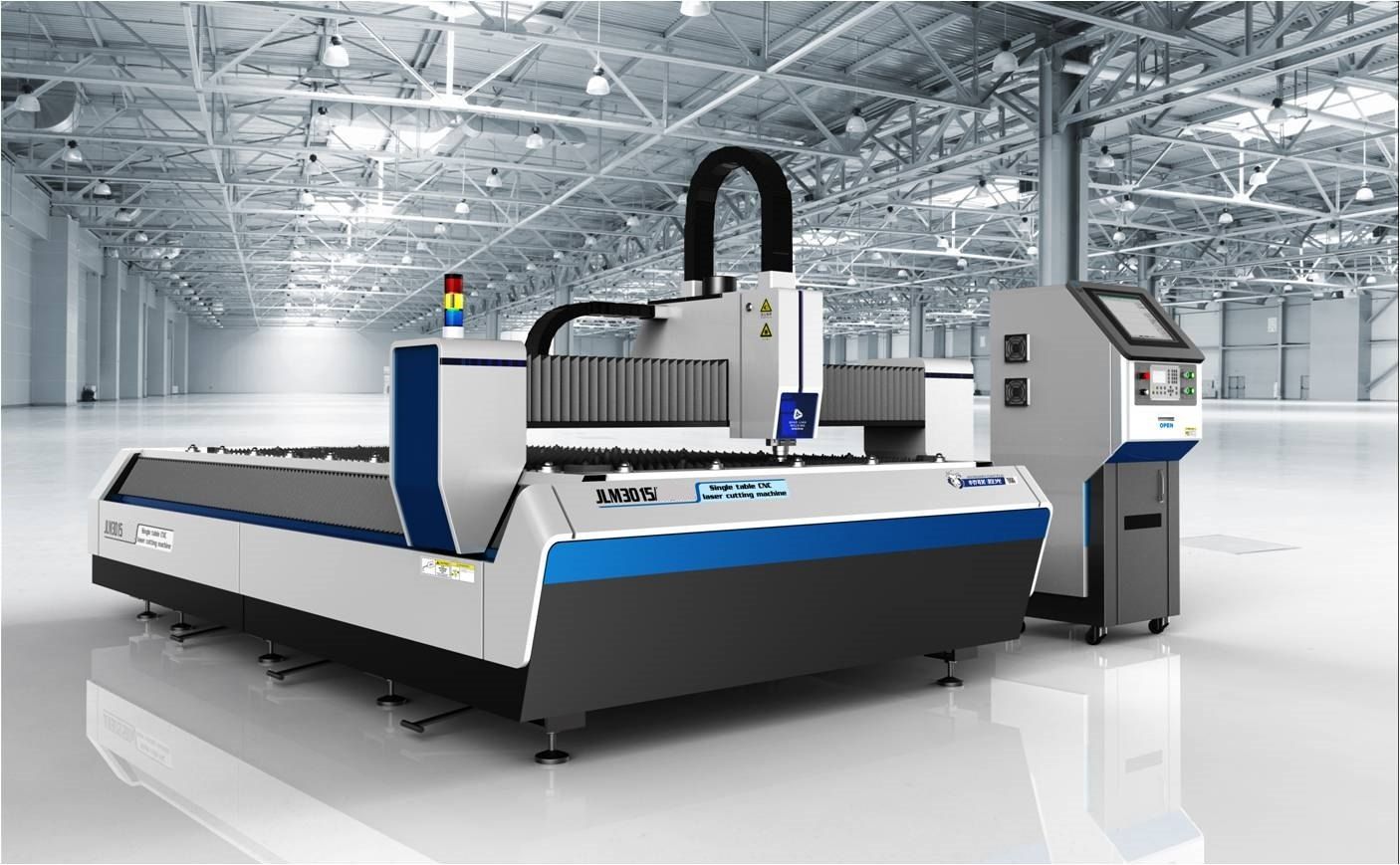CNC laser machines are transforming industries by enabling precise cutting, engraving, and marking on a wide range of materials. From manufacturing and automotive to jewelry design and medical tools, these machines are known for speed, efficiency, and accuracy. With demand rising globally, businesses are considering CNC laser machines as a long-term investment for automated production.
CNC laser machines are transforming industries by enabling precise cutting, engraving, and marking on a wide range of materials. From manufacturing and automotive to jewelry design and medical tools, these machines are known for speed, efficiency, and accuracy. With demand rising globally, businesses are considering CNC laser machines as a long-term investment for automated production.

Benefits of CNC Laser Machines
High Precision: Delivers detailed cuts and engravings at micron-level accuracy.
Automation: CNC (Computer Numerical Control) enables repeatability and reduces human error.
Versatility: Works with metals, plastics, wood, acrylic, ceramics, and more.
Cost Efficiency: Reduces material wastage compared to traditional cutting methods.
Scalability: Suitable for both small-scale workshops and large industrial production.
Limitations of CNC Laser Machines
Initial Investment: CNC laser machines require a higher upfront cost compared to manual tools.
Maintenance: Regular calibration and servicing are necessary.
Material Restrictions: Some reflective metals and certain plastics require specialized lasers.
Energy Consumption: High-power lasers can consume significant electricity.
Types of CNC Laser Machines
CO2 Laser Machines – Best for non-metal materials like wood, acrylic, paper, and glass.
Fiber Laser Machines – Ideal for cutting and engraving metals like steel, copper, and aluminum.
Diode Laser Machines – Cost-effective, portable option for light engraving.
Nd:YAG Laser Machines – Used for high-strength metals and industrial applications.
Key Features to Look For in 2025
Laser Power Options: 40W for engraving, up to 12kW+ for industrial cutting.
Software Integration: Compatible with AutoCAD, SolidWorks, and AI-based CAM software.
Automation & Robotics: Machines now come with robotic arms and IoT monitoring.
Cooling Systems: Built-in water or air cooling for extended machine life.
Safety Standards: Protective enclosures, automatic shut-off, and certified filters for fumes.
CNC Laser Machine Applications
Manufacturing: Precision cutting for automotive and aerospace parts.
Medical: Surgical tools, implants, and micro-device fabrication.
Jewelry & Fashion: Engraving gold, silver, and fine designs on leather or fabrics.
Architecture & Interiors: Decorative panels, signboards, and detailed artwork.
Electronics: PCB cutting and marking electronic components.
Comparison Table: CNC Laser Machine Types
| Machine Type | Best For | Material Compatibility | Typical Use Case |
|---|---|---|---|
| CO2 Laser | Non-metals | Wood, acrylic, glass | Signage, furniture, art |
| Fiber Laser | Metals | Steel, copper, aluminum | Automotive, aerospace, jewelry |
| Diode Laser | Entry-level engraving | Plastics, soft materials | Hobbyists, small businesses |
| Nd:YAG Laser | Heavy-duty metals | Titanium, alloys | Industrial & defense manufacturing |
Checklist for Buying a CNC Laser Machine
Define your primary application (engraving, cutting, marking).
Choose the laser type based on materials.
Check power output for efficiency.
Ensure software compatibility with existing tools.
Review safety certifications before purchase.
Ask for after-sales support and warranty from the supplier.
Top CNC Laser Machine Brands in 2025
Trumpf – Known for industrial-grade fiber lasers.
Epilog Laser – Popular for small businesses and CO2 models.
Trotec – Offers both engraving and large-format solutions.
Han’s Laser – China-based manufacturer with global presence.
Bystronic – Advanced laser cutting solutions for manufacturing.
How to Choose the Right CNC Laser Machine
Small Businesses & Startups: CO2 or diode lasers are affordable and versatile.
Industrial Manufacturing: Fiber or Nd:YAG lasers with high power and automation.
Design Studios: Mid-range CO2 laser with engraving capabilities.
Medical & Aerospace: Fiber lasers with high precision and compliance certifications.
Trends in CNC Laser Machines (2025)
AI-Powered Control Systems: Predictive maintenance and auto-adjust settings.
Cloud Connectivity: Remote monitoring of machine performance.
Green Manufacturing: Energy-efficient lasers with minimal waste.
3D Laser Cutting: Increasing use in complex product designs.
Customization Demand: Small-batch and custom product engraving on the rise.
FAQs on CNC Laser Machines
Q1. Can CNC laser machines cut thick metals?
Yes, fiber lasers with high wattage can cut through thick steel, aluminum, and titanium.
Q2. Which industries use CNC laser machines most?
Manufacturing, aerospace, automotive, medical, and jewelry sectors.
Q3. Are CNC laser machines safe to use?
Yes, when operated with protective enclosures and safety protocols.
Q4. How long do CNC laser machines last?
On average, 8–12 years with proper maintenance and cooling systems.
Q5. What is the difference between fiber and CO2 lasers?
Fiber lasers are best for metals, while CO2 lasers excel in non-metals like wood and acrylic.
Conclusion: Future of CNC Laser Machines
CNC laser machines are no longer limited to industrial giants. With advancements in fiber and CO2 technology, even small businesses and creators can benefit from precision cutting and engraving. By understanding machine types, features, and applications, businesses can make informed decisions that drive productivity and innovation.
